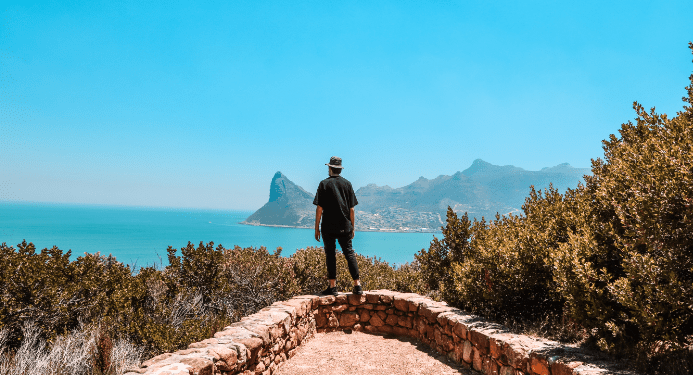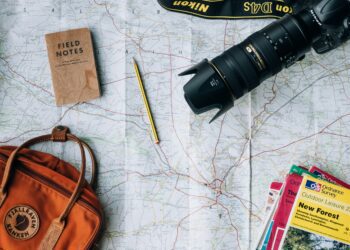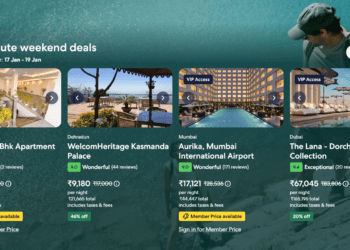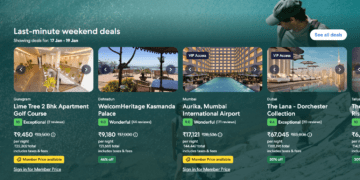Planning a trip can be an amazing experience, but it can also be daunting. With so many places to see and things to do, it can be hard to know where to start. And when you add in the fact that many destinations are off the beaten path, things get even more complicated. To make your travel experience as wonderful as possible, follow these five tips for traveling off the beaten path. You won’t regret it!
Research the destination
1. Do your research – before you leave, be sure to have a good understanding of what the destination is all about. This will help you choose attractions and restaurants that are worth visiting.
2. Use public transportation – buses and trains can get you to most destinations without having to spend a fortune on taxis or renting a car.
3. Go off the beaten path – explore small towns and villages that typically don’t get much attention from tourists. You’ll be surprised at what you find!
4. Bring comfortable shoes – whether you’re planning on walking or trekking through nature, be sure to pack sturdy shoes that can handle any terrain.
5. Be prepared for extreme weather conditions – if the destination is in a cold country, dress appropriately for the weather conditions and bring extra layers of clothing if necessary. And if it’s hot out, remember to pack plenty of water and sunscreen!
Pack lightly
When planning your next travel adventure, be sure to pack lightly. This will allow you to experience more of the local culture and scenery. Additionally, by packing lightly, you’ll have less weight to carry around, which will make hiking and biking much more enjoyable. Here are some tips for traveling off the beaten path:
1. Research your destination before you go. This will help you determine what attractions are worth visiting and which ones are not worth your time.
2. Bring a map and compass if you plan on hiking or biking in unfamiliar territory. These activities can be very dangerous without proper guidance.
3. Make use of public transportation whenever possible. Local buses and trains can take you to all sorts of interesting destinations that aren’t accessible by car or bike.
4. Be prepared for weather conditions that may be different from what you’re used to. When traveling to a new location, always be aware of the risks involved in extreme weather conditions such as blizzards or thunderstorms.
Create a budget
Creating a budget for travel can be daunting, but with some planning it can be easy to find affordable flights, lodging, and activities.
Begin by creating a list of your expected expenses. Include everything from airfare costs to transportation costs to attractions fees. Then create separate budgets for each type of expense. For instance, you may want to budget $100 per day for airfare and another $50 per day for food.
Once you have created your individual budgets, it is important to account for hidden costs. Many travelers forget to include taxes, airport fees, and other small expenses that can quickly add up.
Finally, be realistic about your travel goals and don’t spend more money than necessary on items like souvenirs or luxurious hotels. Instead, focus on finding affordable alternatives that still offer a great experience.
Make a packing list
1. While packing for your trip, make a packing list of what you need and what you don’t. This will help keep your travel costs down and also help you stay organized during your travels.
2. Make sure to pack necessary items like passports, visas, tickets, and money in case of emergencies.
3. Always be aware of local safety precautions when traveling off the beaten path. For example, avoid walking alone at night or in deserted areas, and always carry cash or traveler’s checks in case of emergencies.
4. When traveling to unfamiliar places, it is important to do your research before you go so that you are aware of the local customs and safety precautions.
Discuss your plans with friends and family
1. Before you go, make a plan with your friends and family. Go over your itinerary and determine who will be contributing to what parts of the journey. This way everyone knows what to expect and can adjust as needed.
2. Research the area you are visiting beforehand. Do some online research or talk to locals to get an idea of what attractions and restaurants are worth checking out.
3. Bring enough money with you to cover basic expenses while in the area, as well as extras for any unexpected costs (e.g., lost luggage, tours).
4. Make sure your passport is up-to-date and have traveler’s insurance in case of an accident or illness.
5. Lock your belongings in a safe place when not in use, especially if you are traveling to areas with high crime rates or during festivals or major events where crowds may be more prevalent.





















